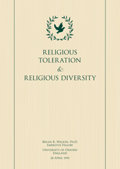The new movements which renounce the world are principally, but not exclusively, variants or derivatives of Hinduism or Buddhism, in which religions this orientation generally prevails. Some (but not all) new Christian fundamentalist bodies also operate within the framework of an ethos in which world-renunciation predominates. Adherents of these religions typically abandon contemporary, material, western values. They may assume a communal and perhaps even a communitarian life-style, and in new religions which are of oriental provenance devotees typically adopt what, to westerners, are alien concepts. They may, in some cases, learn an oriental language for worship, and relinquish western mores and conventions in favour of other taboos and injunctions affecting sexuality, social intercourse, diet, and even wearing apparel. The International Society for Krishna Consciousness (the Hare Krishna movement) is perhaps the most conspicuous movement of this type, but some of the same dispositions are to be found in the Divine Light Mission and, even though it claims to be Christian, in the Unification Church (the Moonies).
Some world-renouncing movements tend, in the nature of this orientation, to be “totalistic”, that is to say, they tend to expect that their adherents will give themselves completely to their faith and make it a total commitment, ordering all departments of their lives in accordance with the faith that they have espoused. This, is, of course, most easily effected where the movement expects adherents to adopt a communal pattern of living. In many respects, such a requirement bears a close analogy to that made of members of monastic orders (whether Christian or Buddhist). There are world-renouncing religions which stop short of advocating the total separation from the wider society which communal living achieves. These movements generally provide a comprehensive, and often complex system of metaphysics within which their votaries are directed to find intellectual answers to questions concerning the ultimate meaning and purpose of life. Not infrequently, the more advanced levels of metaphysical teachings may be secret and available only to adepts. Religions of this kind include Theosophy, Anthroposophy, and Gurdjieffism. The mystic strain may not always preclude activities for social benefit, however, even if an element of social withdrawal is also evident: the educational facilities for disabled children maintained by the Anthroposophists eloquently makes the point.





























